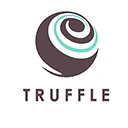The truffle-config.js file is a critical part of any Truffle project. It allows developers to configure various settings that affect how Truffle interacts with the Ethereum blockchain, compiles contracts, and runs tests. Below are the key settings you should know about.
1. Networks
The networks setting is where you define the different blockchain networks you want to deploy your contracts to. Each network can have its own configuration, including the provider, network ID, and gas settings.
Example:
module.exports = {
networks: {
development: {
host: "127.0.0.1", // Localhost
port: 7545, // Ganache GUI default port
network_id: "*", // Match any network id
},
ropsten: {
provider: () => new HDWalletProvider('YOUR_MNEMONIC', 'https://ropsten.infura.io/v3/YOUR_INFURA_KEY'),
network_id: 3, // Ropsten's id
gas: 5500000, // Gas limit
},
}
};2. Compilers
The compilers setting allows you to specify the version of the Solidity compiler you want to use for your smart contracts. This is important for ensuring compatibility with your code.
Example:
compilers: {
solc: {
version: "0.8.0", // Specify the Solidity version
settings: {
optimizer: {
enabled: true, // Enable the optimizer
runs: 200 // Optimize for how many times you intend to run the code
}
}
}
},3. Mocha
The mocha setting allows you to configure the testing framework used by Truffle. You can specify test files, timeout settings, and other options.
Example:
mocha: {
reporter: "spec", // Specify the reporter to use
timeout: 10000 // Set the timeout for tests
},4. Contracts_directory
The contracts_directory setting lets you specify a custom directory for your smart contracts. By default, Truffle looks for contracts in the contracts/ directory.
Example:
contracts_directory: "./custom_contracts",5. Migrations_directory
The migrations_directory setting allows you to specify a custom directory for your migration scripts. This is useful if you want to organize your files differently.
Example:
migrations_directory: "./custom_migrations",6. Test_directory
The test_directory setting allows you to specify a custom directory for your test files. By default, Truffle looks for tests in the test/ directory.
Example:
test_directory: "./custom_tests",7. Plugins
The plugins setting allows you to include additional plugins that can extend the functionality of Truffle. This can be useful for integrating with other tools or services.
Example:
plugins: [
"truffle-plugin-verify", // Plugin for verifying contracts on Etherscan
],Conclusion
Understanding the key settings in the truffle-config.js file is essential for effectively managing your Truffle project. By configuring networks, compilers, and other settings, you can tailor your development environment to meet your specific needs and ensure a smooth workflow.

